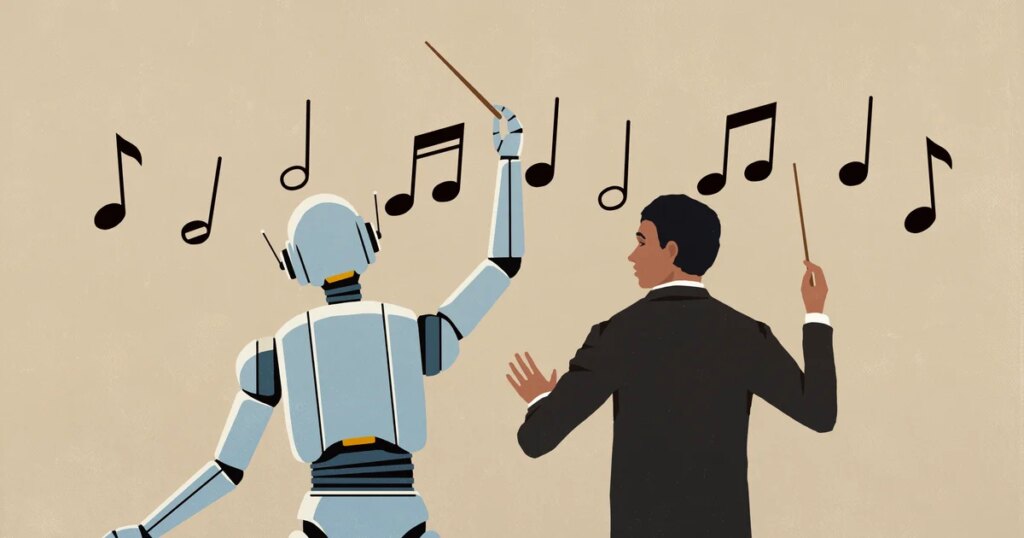A recent survey has revealed that distinguishing between music created by artificial intelligence (AI) and that composed by humans has become increasingly challenging for listeners. Conducted by polling firm Ipsos for the France-based streaming platform Deezer, the study included responses from 9,000 people across eight countries. The findings indicate a growing concern over the authenticity of music as AI-generated tracks become more prevalent in the industry.
| Article Subheadings |
|---|
| 1) Impact of AI on Music Identification |
| 2) Survey Methodology and Findings |
| 3) Concerns Regarding AI-Generated Music |
| 4) Trends in AI Music Creation |
| 5) The Need for Transparency in Music Streaming |
Impact of AI on Music Identification
The increasing sophistication of AI technology has made it harder for audiences to discern between human-created and AI-generated music. According to the survey conducted by Ipsos, an overwhelming 97 percent of respondents were unable to tell the difference between the two types of music. This statistic illustrates a significant shift in the music landscape, with AI algorithms now capable of producing sounds and compositions that closely mimic human creativity.
This growing difficulty in distinguishing between the two forms raises several questions about music authenticity and the future of musical artistry. As AI systems evolve, there is potential for a devaluation of traditional music-making processes, as artificially generated tracks gain acceptance and popularity among listeners.
Survey Methodology and Findings
The survey was conducted between October 6 and October 10, encompassing eight diverse countries: Brazil, Britain, Canada, France, Germany, Japan, the Netherlands, and the United States. Ipsos polled 9,000 individuals, asking them to listen to clips of two AI-generated songs and one human-made song. The results were striking, with over half of those surveyed expressing discomfort over their inability to identify the source of the music.
Beyond this binary identification issue, the survey also covered broader concerns about the impact of artificial intelligence on music quality. Over half of the participants believed that AI would contribute to a rise in low-quality music available on streaming platforms, while nearly two-thirds expressed worry that it could lead to a deterioration of creativity in music overall.
Concerns Regarding AI-Generated Music
The survey findings underscore a poignant concern among listeners about the implications of AI in the music industry. As Alexis Lanternier, CEO of Deezer, stated, “The survey results clearly show that people care about music and want to know if they’re listening to AI or human-made tracks or not.” This sentiment expresses the growing importance of transparency in music production, raising issues about artistic integrity and the emotional connection listeners have with music.
Many survey participants insisted on clear labeling for AI-generated content, showing a collective desire for authenticity. Deemed a necessity by 80 percent of respondents, this labeling would ensure that listeners can make informed choices about their musical experiences.
Trends in AI Music Creation
The prominence of AI-generated music has surged significantly in recent years. Deezer reported a remarkable increase in fully AI-generated tracks being streamed on its platform. In January, only 10 percent of daily streams were composed of AI-generated music; by October, that figure had jumped to over 30 percent, amounting to nearly 40,000 streams each day.
This rapid growth reflects not only advancements in AI technology but also the growing acceptance among listeners of AI in various forms of artistic expression. While concerns exist regarding quality, the increasing engagement with AI-generated music indicates an evolving musical landscape that demands further exploration and understanding.
The Need for Transparency in Music Streaming
In light of the escalating presence of AI-generated music, the necessity for transparency within the music industry has become paramount. Deezer has taken proactive steps to label AI-generated content systematically, setting it apart from human-created works. This initiative positions Deezer as a leading platform in addressing listener concerns about the rise of AI in music production.
The issue gained significant media attention in June when a band named The Velvet Sundown, which went viral on Spotify, later revealed that their content was entirely generated by AI. The incident raised eyebrows regarding the authenticity of music content in the streaming space, further emphasizing the need for platforms to adopt clear labeling practices. In response to such developments, Spotify has expressed intentions to encourage artists and publishers to sign a voluntary industry code to disclose the extent of AI usage in music production.
| No. | Key Points |
|---|---|
| 1 | 97 percent of respondents could not differentiate between AI-generated and human-created music. |
| 2 | Over half of participants expressed discomfort regarding their inability to identify music sources. |
| 3 | 51 percent believe AI will contribute to an increase in low-quality music. |
| 4 | The daily streams of AI-generated music have escalated from 10 to 30 percent within ten months. |
| 5 | Deezer is currently the only major platform systematically labeling AI-generated content. |
Summary
The rise of AI-generated music poses significant implications for the music industry, as highlighted by the recent survey conducted by Ipsos. With listeners struggling to differentiate between AI and human-made music, there is a growing demand for transparency and labeling of AI-generated content. As platforms like Deezer take steps to address these concerns, the challenges and opportunities presented by AI in music continue to unfold.
Frequently Asked Questions
Question: What is AI-generated music?
AI-generated music refers to compositions created entirely by artificial intelligence algorithms, which can mimic human creativity in music production.
Question: Why does the distinction between AI and human-created music matter?
The distinction is significant as it raises concerns about authenticity, quality, and the emotional connection listeners may have with music, affecting artists’ credibility and music appreciation.
Question: How are streaming platforms addressing concerns regarding AI-generated music?
Some platforms, such as Deezer, are actively labeling AI-generated content to ensure listeners are aware of the music’s origins, while others may follow suit to maintain transparency.
